Lewis Spence and the Mysteries of Britain
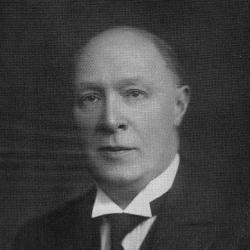 The first Scottish nationalist to contest a Westminster parliamentary seat in Scotland was the journalist, poet and folklorist Lewis Spence in January 1929. He polled 842 votes (a worthy 4.5% of the vote) in the Midlothian and Peebles Northern constituency which was won by Labour in a three-cornered fight with Spence and the Conservatives. Spence's Scottish National Movement had combined in 1928 with other Scottish Home Rule organisations, including the Gaelic revivalist Ruariridh Erskine's Scots National League, to form the National Party of Scotland (NPS). Later in 1934, the NPS amalgamated with the more conservative Scottish Party to form the modern-day Scottish National Party which exists today under the capable leadership of Alex Salmond.
The first Scottish nationalist to contest a Westminster parliamentary seat in Scotland was the journalist, poet and folklorist Lewis Spence in January 1929. He polled 842 votes (a worthy 4.5% of the vote) in the Midlothian and Peebles Northern constituency which was won by Labour in a three-cornered fight with Spence and the Conservatives. Spence's Scottish National Movement had combined in 1928 with other Scottish Home Rule organisations, including the Gaelic revivalist Ruariridh Erskine's Scots National League, to form the National Party of Scotland (NPS). Later in 1934, the NPS amalgamated with the more conservative Scottish Party to form the modern-day Scottish National Party which exists today under the capable leadership of Alex Salmond.  An idea of what animated Lewis Spence's political thought can be extracted from his 1905 book The Mysteries of Britain: Secret Rites and Traditions of Ancient Britain (reprinted in 1994 by Senate). The book is dripping with erudition and politically incorrect racial and ethnic analysis relating to the origins of the pre-Christian native religion of the ancient British Isles and the indigenous people of those islands who practised it. Spence concludes: "In no individual born in these islands does there not flow the blood of the Druid priests and seers, and I confidently rely on British mystics, whatever their particular predilections, to unite in this greatest of all possible quests, the restoration of our native Secret Tradition," arguing that "we Britons are much too prone to look for excellence outside of the boundaries of our own island" and "that we should so weakly rely on alien systems of thought while it is possible for us to re-establish our own is surely miserable."
An idea of what animated Lewis Spence's political thought can be extracted from his 1905 book The Mysteries of Britain: Secret Rites and Traditions of Ancient Britain (reprinted in 1994 by Senate). The book is dripping with erudition and politically incorrect racial and ethnic analysis relating to the origins of the pre-Christian native religion of the ancient British Isles and the indigenous people of those islands who practised it. Spence concludes: "In no individual born in these islands does there not flow the blood of the Druid priests and seers, and I confidently rely on British mystics, whatever their particular predilections, to unite in this greatest of all possible quests, the restoration of our native Secret Tradition," arguing that "we Britons are much too prone to look for excellence outside of the boundaries of our own island" and "that we should so weakly rely on alien systems of thought while it is possible for us to re-establish our own is surely miserable." He called for the "restoration of the entire fabric of British native mysticism" concluding "the missing stones of that fabric lie directly beneath our feet in the soil of our own island, and it depends entirely upon our patriotism and our vigilance whether they shall be recovered and once more fill the gaps and seams in the ancient edifice of British arcane wisdom."
|
|
| Wendy Wood |
Wood is also cited in the Preface to Spence's Mysteries of Britain book where he states: "I cannot close without expressing my sincere thanks to Miss Wendy Wood for the eight excellent drawings which she has made for this book. Deeply imbued with the Keltic spirit and versed in the details of Keltic antiquity, she has infused them with the richness of Keltic imagination and mysticism."
Scottish cultural and social nationalism
The leader of the Scots National League, Ruairidh Erskine, despite his aristocratic lineage, had close links to important Scottish socialist figures, such as John Maclean, the influential Scottish Marxist and a left-wing nationalist. However, despite his support for land reform and other socialist measures, Erskine was regarded as a reactionary figure by many on the burgeoning socialist left in Scotland because of his deep commitment and support for a Scottish Gaelic cultural revival, including everyday use and development of the language. Erskine was also close friends with another Gaelic revivalist, the journalist, William Gillies, another nationalist with close links to the socialist left, but who, like Erskine, was more interested in the revival of the Gaelic language and who campaigned to make Gaelic the national language of Scotland in order to counteract the increasing hegemony of the English language and English-speakers amongst the Scottish people, particularly the working classes in Scotland's towns and cities.Gillies also advocated close links to Irish nationalists and was involved in the establishment of a volunteer force called Fianna na h-Alba that was ready to use armed force to win Scottish independence. However, following advice by the legendary Irish nationalist leader, Michael Collins, the plan was abandoned after he argued in a letter that the militant Scottish nationalists "do not appreciate the particular difficulties they are up against," particularly with regards the lack of significant public support in Scotland for such action and the relative strength of the British state north of the border compared to the situation in Ireland.
 Another significant pre-war figure in politically incorrect Scottish nationalism was the celebrated Scottish poet, Hugh MacDiarmid (born Christopher Murray Grieve) a founder member of the National Party of Scotland, who in 1923, a year after Mussolini's rise to power in Italy, wrote two articles calling for a Scottish Fascism which would engineer as part of its programme a Scottish national revival and radical social justice across the country. MacDiarmid also set up a Scottish Fascist combat organisation called Clann Albainn which existed as an underground movement for many years, even after its founder finally embraced communism. Later, he would be expelled from the SNP because of his communist views. Upon joining the Communist Party, MacDiarmid, rather ironically, would eventually be expelled for his nationalist views!
Another significant pre-war figure in politically incorrect Scottish nationalism was the celebrated Scottish poet, Hugh MacDiarmid (born Christopher Murray Grieve) a founder member of the National Party of Scotland, who in 1923, a year after Mussolini's rise to power in Italy, wrote two articles calling for a Scottish Fascism which would engineer as part of its programme a Scottish national revival and radical social justice across the country. MacDiarmid also set up a Scottish Fascist combat organisation called Clann Albainn which existed as an underground movement for many years, even after its founder finally embraced communism. Later, he would be expelled from the SNP because of his communist views. Upon joining the Communist Party, MacDiarmid, rather ironically, would eventually be expelled for his nationalist views! Like many European nationalists, including the Flemish, Breton and Ukrainian nationalists, along with nationalists closer to home in Wales and Ireland, MacDiarmid saw opportunities for Scottish nationalism in the advance of Nazi Germany and the possible unravelling of the British state following a German invasion of England.
In 1941, he wrote to a friend: "On balance I regard the Axis powers, tho' more violently evil for the time being, less dangerous than our own government in the long run and indistinguishable in purpose." A year earlier he had written: "If the Germans win they could not hold their gains for long, but if the French and British win it will be infinitely more difficult to get rid of them" and, as a result, he hoped for a quick Nazi victory in order to advance the Scottish nationalist cause.
Towards the end of his life, MacDiarmid became the President of the 1320 Club (the year of the Declaration of Abroath which reaffirmed Scotland's determination to remain independent of England at the time) which was the ultra-nationalist forerunner to the ethno-nationalist Siol nan Gaidheal 'ginger group' which rose to prominance in the seventies and eighties.
"Scotland's Quisling"
|
|
| Arthur Donaldson |
The report by the MI5 agent that prompted their arrest was later released after Donaldson's death and it included a conversation with Donaldson which prompted MI5's belief that he was a National Socialist sympathiser and a potential pro-German collaborator.
The report read:
"During a long conversation, Donaldson gave great praise to Germany saying that England would be completely crushed by the early Spring; the Government would leave the country and that England's position would be absolutely hopeless, as poverty and famine would be their only reward for declaring war on Germany. Scotland on the other hand had great possibilities. We must, he declared, be able to show the German Government that we are organised and that we have a clear cut policy for the betterment of Scotland; that we have tried our best to persuade the English Government that we want Scottish independence and that we are not in with them in this war. If we can do that you can be sure that Germany will give us every possible assistance in our early struggle. The time is not yet ripe for us to start a visible campaign against England, but when fire and confusion is at its height in England, we can start in earnest. He then went on to tell them he had an idea in his mind for fixing up a wireless transmitting set in a thickly populated district in Glasgow or Edinburgh, in order to give broadcasts to the public. At the moment he is working very hard in an endeavour to combine all the Nationalists together as a unit, whereby they can strike out with great force when the time comes."After the war, during his leadership of the SNP, the party began to organise more professionally under his guidance and poll more credibly at elections which, as a result, culminated in the famous Hamilton by-election victory for the SNP in 1967. However, in 1969, Donaldson was replaced as leader of the party after a leadership challenge by the social democrat, Billy Wolfe, who helped pave the way for Alex Salmond's ascendancy in the party today.
Seed of the Gaels
Post-war, the flame of Scottish ethnic nationalism was mainly kept alive by Siol nan Gaidheal (SnG), which means in Scottish Gaelic - the Offspring or Seed of the Gaels!|
|
| Siol nan Gaidheal - kicked out of the SNP at the same time as Alex Salmond. |
In the 1980s, SnG produced a magazine called Firinn Albannach (Truth of Scotland) which was described as being "anti-communist, neo-fascist and sometimes violent in tone" in a survey of British and Irish political groups conducted by liberal academics from Manchester University.
Free Scotland
The Free Scotland Party, led by Brian Nugent, broke away from the SNP in 2004 over disagreements about the European Union (EU) and Scotland's future membership once independent. The party stood for an independent Scotland, independent of both the British state and the EU superstate, with Norway, an independent non-EU country, identified as a model for a future independent Scotland. The party contested a number of elections in 2005 and 2007 with Jim Fairlie, a former Deputy Leader of the SNP, standing as one of the candidates, but none were successful.A Scottish Future for Scottish Nationalists
Despite the current stranglehold on the party by 1968 leftists, the SNP is steeped in an ethno-nationalist tradition with roots that go back to its very origins and formation before the Second World War. Genuine Scottish nationalists now need to consider their position in Scottish politics. They must, in our opinion, unite and rally around a Scottish First-type organisation that can provide direction and meaning following independence which now seems highly possible, even if the NO campaign is temporarily able to halt the trend towards independence. It is obvious that the Tory/UKIP/BNP unionist position, bolstered by the religious sectarian cranks of the Orange Order, is no longer an option for serious ethno-nationalist activists and campaigners. The same logic also applies to the Scottish sovereignists of Free Scotland who should also be approached for their views on a possible realignment and amalgamation. In the meantime, we wish Scotland and its people well in their journey towards self-determination and freedom.Originally published at Civil Liberty





 del.icio.us
del.icio.us
 Digg
Digg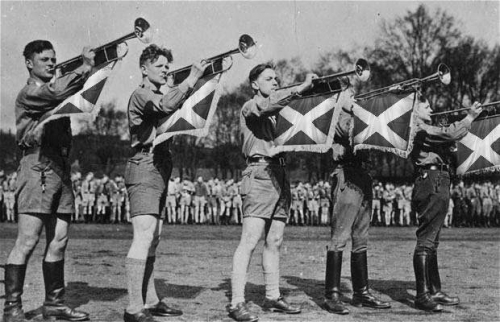


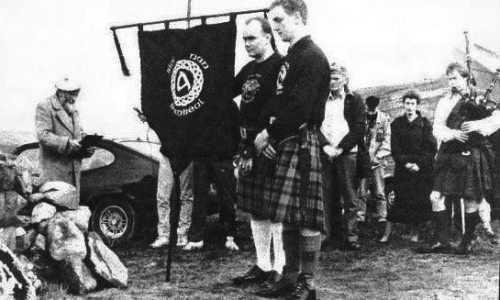
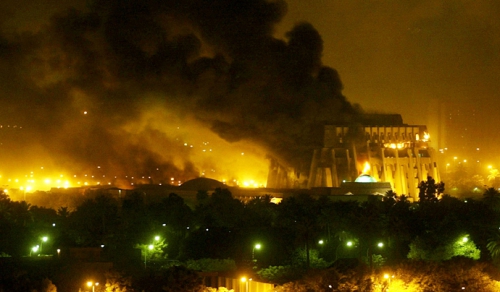
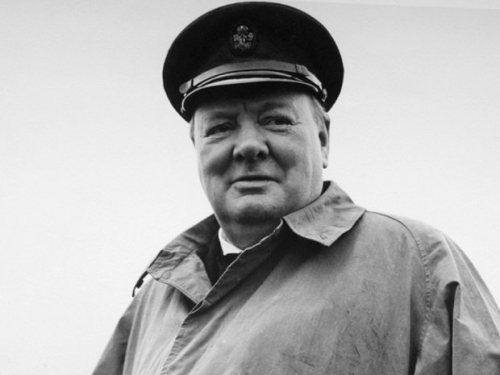
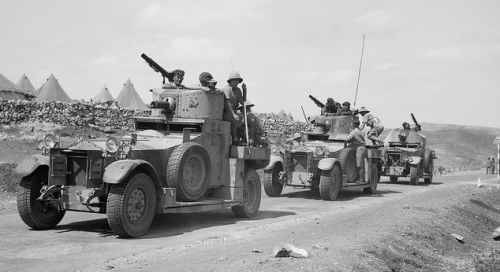
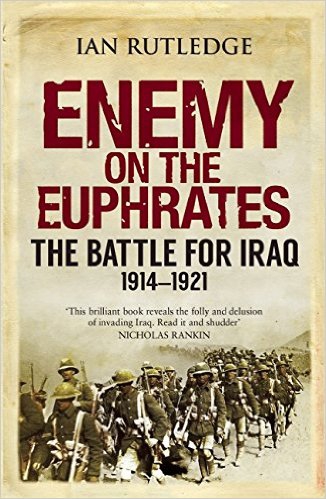 The Iraqi nation grew increasingly wealthy, as oil revenues rose from $500 million in 1972 to over $26 billion in 1980, an increase of almost 50 times in nominal terms.
The Iraqi nation grew increasingly wealthy, as oil revenues rose from $500 million in 1972 to over $26 billion in 1980, an increase of almost 50 times in nominal terms.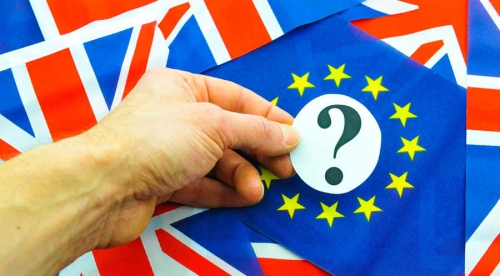
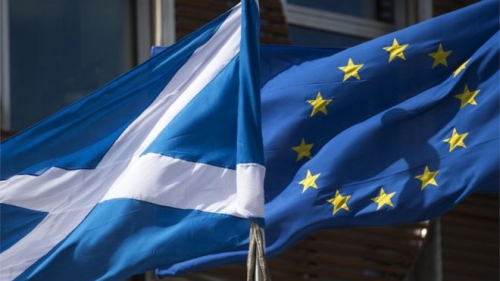
 In the last stages of the campaign we had the tragic assassination of Jo Cox MP. The Remain camp cynically seized on this to boost their campaign. Anyone who voted Leave was a ‘hater’ and the language they had used to criticise immigration and the political class had led to a ‘climate of fear’ which in turn led to her death. Her two children were taken to Parliament to hear MPs pay tributes, and also to a big rally in London’s Trafalgar Square. This attempt to manipulate our emotions also failed. In fact many I know were disgusted by the shameful attempts to use the tragedy to boost a Remain vote. They were also angry at the way that their views were being falsely categorised and denigrated. If anything it made them more likely to vote Leave. I even had some friends who had voted Remain by post earlier, saying that they would have switched to Leave because of the disrespect tht had been shown, had they been given the chance! The ‘love versus hate’ theme has caused a lot of bitterness, anger, and division within our nation. Many Remain supporters are dismayed because it seems as if ‘hate’ has won. That’s one consequence of making the argument seem like a battle between good and evil – something the smug, condescending Left likes to do.
In the last stages of the campaign we had the tragic assassination of Jo Cox MP. The Remain camp cynically seized on this to boost their campaign. Anyone who voted Leave was a ‘hater’ and the language they had used to criticise immigration and the political class had led to a ‘climate of fear’ which in turn led to her death. Her two children were taken to Parliament to hear MPs pay tributes, and also to a big rally in London’s Trafalgar Square. This attempt to manipulate our emotions also failed. In fact many I know were disgusted by the shameful attempts to use the tragedy to boost a Remain vote. They were also angry at the way that their views were being falsely categorised and denigrated. If anything it made them more likely to vote Leave. I even had some friends who had voted Remain by post earlier, saying that they would have switched to Leave because of the disrespect tht had been shown, had they been given the chance! The ‘love versus hate’ theme has caused a lot of bitterness, anger, and division within our nation. Many Remain supporters are dismayed because it seems as if ‘hate’ has won. That’s one consequence of making the argument seem like a battle between good and evil – something the smug, condescending Left likes to do.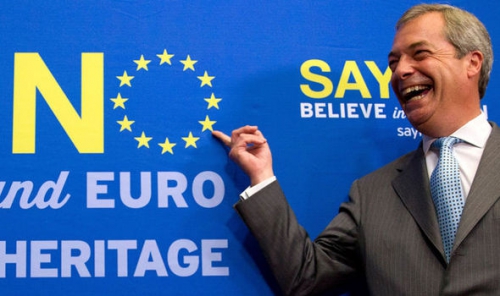
 Pat Harrington
Pat Harrington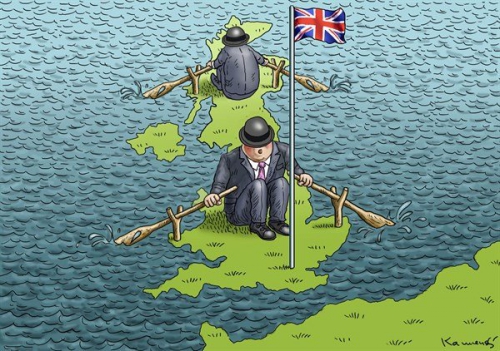
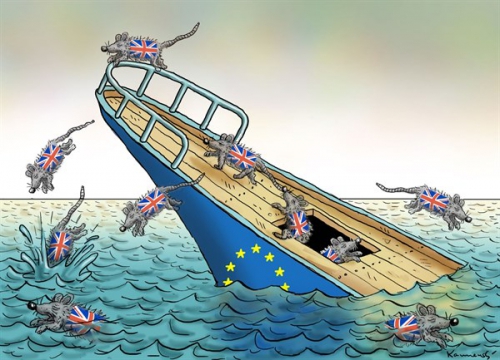
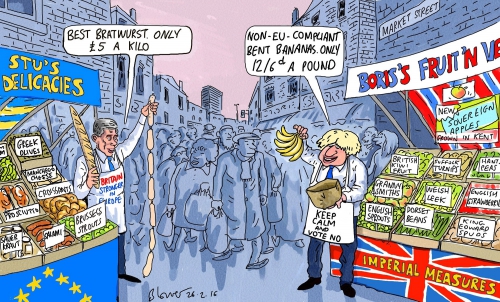
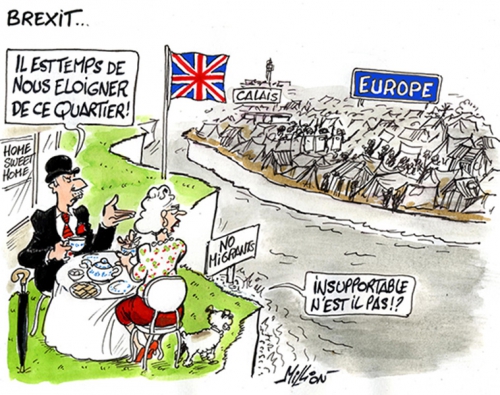
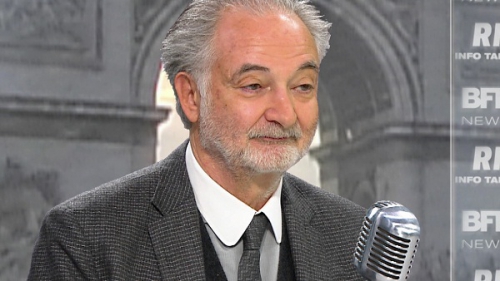
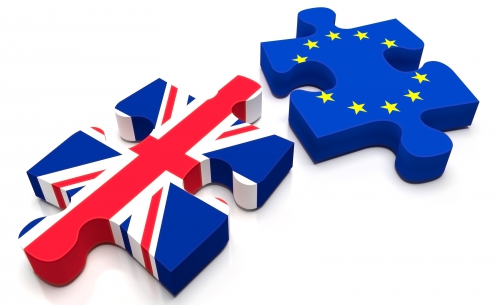
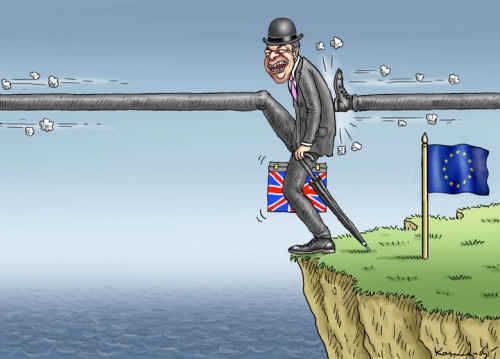
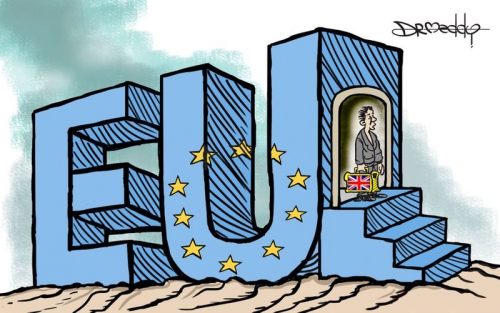
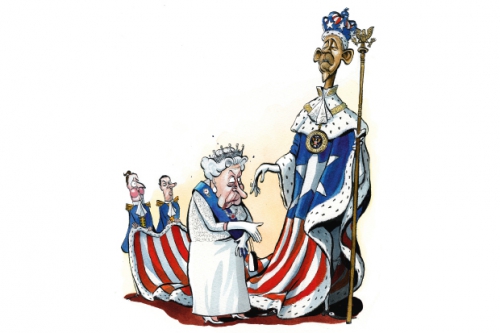
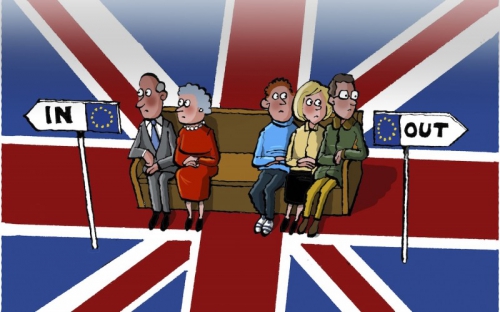
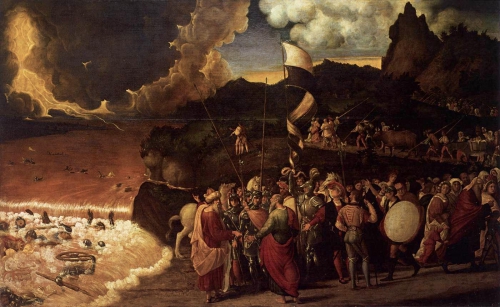
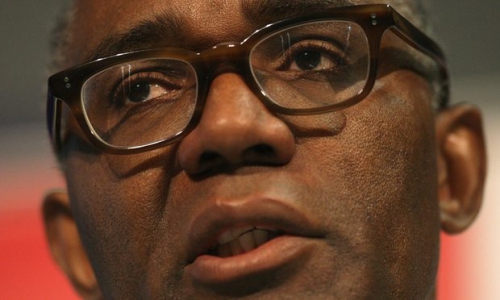
 Phillips explique que depuis le discours d’Enoch Powell en 1968 qui valut à celui-ci sa mise à l’écart de la politique, tout le monde a retenu la leçon : « Adopter toutes les stratégies possibles pour ne pas parler de race, d’ethnicité (et plus tard de religion et de foi), sauf de manière anodine et plate. »
Phillips explique que depuis le discours d’Enoch Powell en 1968 qui valut à celui-ci sa mise à l’écart de la politique, tout le monde a retenu la leçon : « Adopter toutes les stratégies possibles pour ne pas parler de race, d’ethnicité (et plus tard de religion et de foi), sauf de manière anodine et plate. »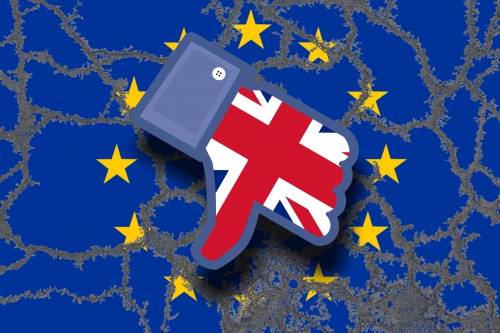
 Une “crise de légitimité” est, à notre époque, nécessairement une crise de communication (en plus de ses composants politiques propres). La pratique statistique en politique (sondages, enquêtes) en fournit notamment mais principalement le moyen, pour le meilleur ou pour le pire, et elle exerce une influence considérable sur les psychologies. Pour cette raison, le dernier sondage Gallup aux USA représente une grave menace pour “le gouvernement des États-Unis” as a whole (toute l’organisation du gouvernement, – administration, Congrès, Cour Suprême, structure de lobbying, d’influence et de corruption, etc.). Ce sondage intervient à l’heure où la démission (effective le 30 octobre) du républicain John Boehner de sa fonction de Speaker (Président de la Chambre des Représentants et deuxième personnage dans la ligne de succession du président en cas d’indisponibilité) autant que de sa fonction de Représentant met en évidence la crise profonde du parti majoritaire (républicain), de plus en plus pressé par son aile droite populiste et anti-fédéraliste. Cela apparaît à l’heure où la politique de l’administration, intérieure et extérieure, avec les démocrates solidaires, est férocement contestée et extraordinairement inefficace...
Une “crise de légitimité” est, à notre époque, nécessairement une crise de communication (en plus de ses composants politiques propres). La pratique statistique en politique (sondages, enquêtes) en fournit notamment mais principalement le moyen, pour le meilleur ou pour le pire, et elle exerce une influence considérable sur les psychologies. Pour cette raison, le dernier sondage Gallup aux USA représente une grave menace pour “le gouvernement des États-Unis” as a whole (toute l’organisation du gouvernement, – administration, Congrès, Cour Suprême, structure de lobbying, d’influence et de corruption, etc.). Ce sondage intervient à l’heure où la démission (effective le 30 octobre) du républicain John Boehner de sa fonction de Speaker (Président de la Chambre des Représentants et deuxième personnage dans la ligne de succession du président en cas d’indisponibilité) autant que de sa fonction de Représentant met en évidence la crise profonde du parti majoritaire (républicain), de plus en plus pressé par son aile droite populiste et anti-fédéraliste. Cela apparaît à l’heure où la politique de l’administration, intérieure et extérieure, avec les démocrates solidaires, est férocement contestée et extraordinairement inefficace...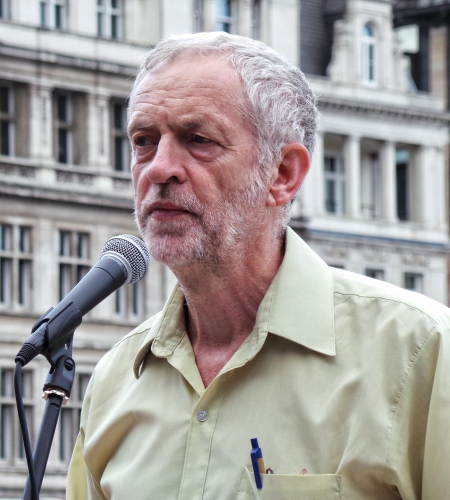
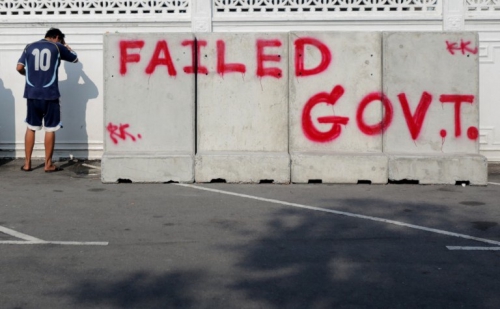
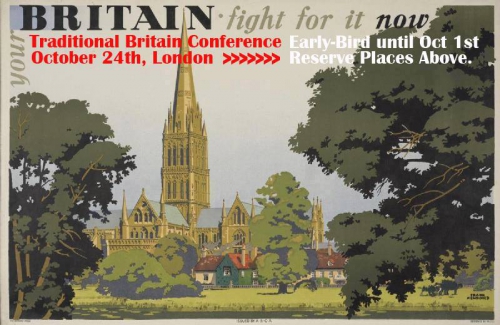
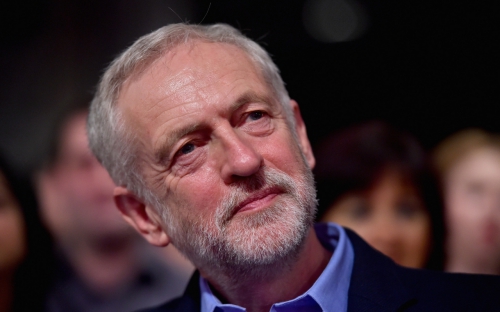
 2) Corbyn fait partie de cette “réaction de gauche”, comme Syriza, comme Podemos, même comme Sanders aux USA, de même qu’il y a une “réaction de droite”, comme le FN en France, les deux constituant les deux ailes d’une “réaction générale”... Mais “réaction” contre quoi ? “Contre de vrais dynamiques populaires qui s’expriment contre le Système, en faisant croire qu’ils (ces mouvements de ‘réaction’) les représentent alors qu’ils les canalisent et les contrôlent en vérité, parce qu’eux-mêmes (ces mouvements de ‘réaction’) sont en fait manipulés par la bourgeoisie et les oligarchies”, dit l’auteure en agitant sa pancarte “Trotski sinon rien” ; “Contre le Système, cette réaction de dynamique populaire passant par tout ce qui peut servir de véhicule pour ceux veulent exprimer leur position antiSystème”, dirions-nous en observant qu’il est préférable de ne pas faire compliqué quand on peut faire simple, d’autant plus que Trotski n’est plus parmi nous pour prendre les choses en mains.
2) Corbyn fait partie de cette “réaction de gauche”, comme Syriza, comme Podemos, même comme Sanders aux USA, de même qu’il y a une “réaction de droite”, comme le FN en France, les deux constituant les deux ailes d’une “réaction générale”... Mais “réaction” contre quoi ? “Contre de vrais dynamiques populaires qui s’expriment contre le Système, en faisant croire qu’ils (ces mouvements de ‘réaction’) les représentent alors qu’ils les canalisent et les contrôlent en vérité, parce qu’eux-mêmes (ces mouvements de ‘réaction’) sont en fait manipulés par la bourgeoisie et les oligarchies”, dit l’auteure en agitant sa pancarte “Trotski sinon rien” ; “Contre le Système, cette réaction de dynamique populaire passant par tout ce qui peut servir de véhicule pour ceux veulent exprimer leur position antiSystème”, dirions-nous en observant qu’il est préférable de ne pas faire compliqué quand on peut faire simple, d’autant plus que Trotski n’est plus parmi nous pour prendre les choses en mains.

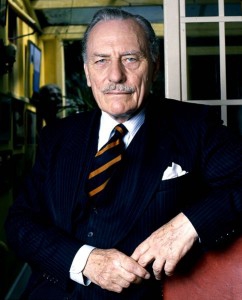 The volume at hand, Standardbearers, seems to have been assembled in the late 1990s to help forge a new middle-way Rightism. It was the early Tony Blair years. The Conservatives were in the wilderness, in thrall to Political Correctness, and the respectable Right had lost its way. Tony Blair had a way of dismissing his opponents’ arguments by describing them as “the past.” As Antony Flew describes in the Foreword:
The volume at hand, Standardbearers, seems to have been assembled in the late 1990s to help forge a new middle-way Rightism. It was the early Tony Blair years. The Conservatives were in the wilderness, in thrall to Political Correctness, and the respectable Right had lost its way. Tony Blair had a way of dismissing his opponents’ arguments by describing them as “the past.” As Antony Flew describes in the Foreword:

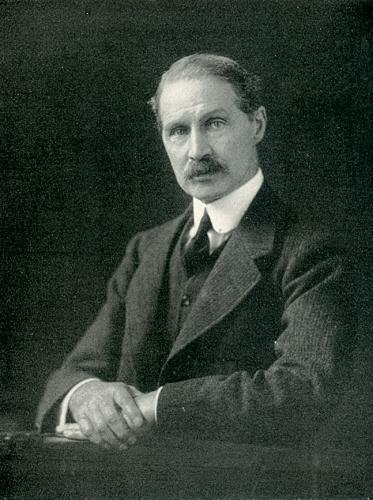
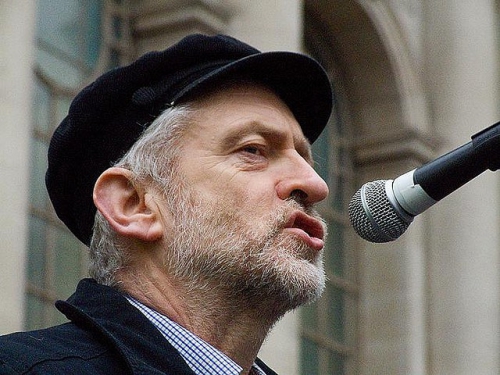
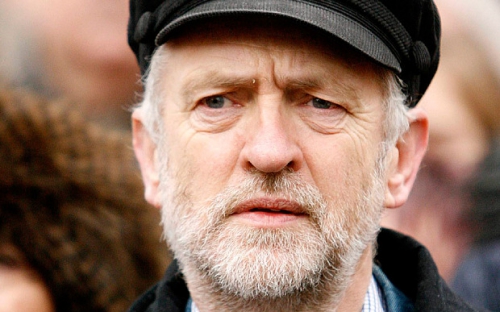
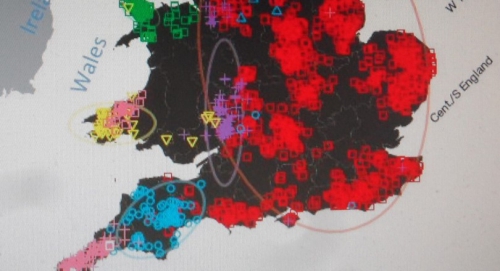
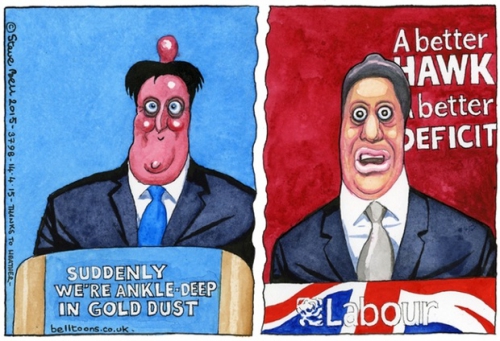
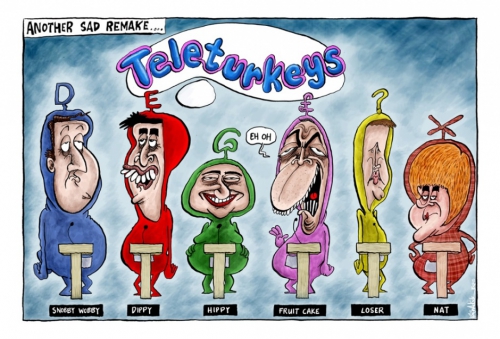
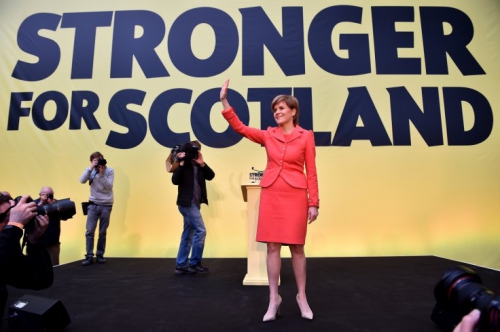

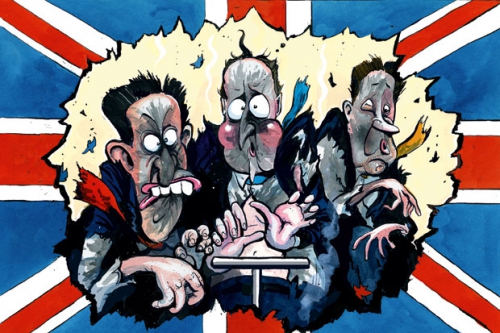
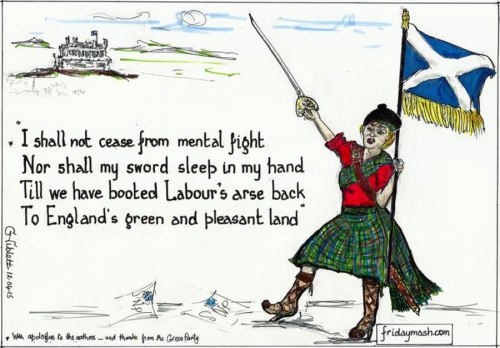
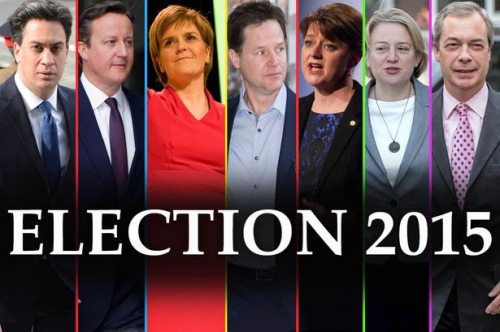
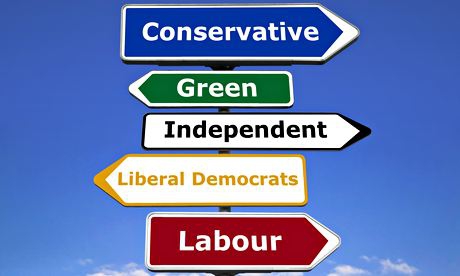 Il plastronne d’ailleurs d’autant moins qu’il a promis, d’ici 2017, un référendum sur la sortie de l’Angleterre du magma européen. Tiendra-t-il ses promesses ? On murmure que certains politiciens persisteraient à honorer cette obscène habitude… Mais là, il lui faudra compter avec les voix de Nigel Farage. Et celles des nationalistes écossais. Et, surtout, avec les menaces de la City qui menace de se délocaliser – tel Renault délocalisant une vulgaire usine Logan en Roumanie- ses activités dans ce no man’s land allant du Liechtenstein aux Îles Caïman tout en passant par Singapour.
Il plastronne d’ailleurs d’autant moins qu’il a promis, d’ici 2017, un référendum sur la sortie de l’Angleterre du magma européen. Tiendra-t-il ses promesses ? On murmure que certains politiciens persisteraient à honorer cette obscène habitude… Mais là, il lui faudra compter avec les voix de Nigel Farage. Et celles des nationalistes écossais. Et, surtout, avec les menaces de la City qui menace de se délocaliser – tel Renault délocalisant une vulgaire usine Logan en Roumanie- ses activités dans ce no man’s land allant du Liechtenstein aux Îles Caïman tout en passant par Singapour.